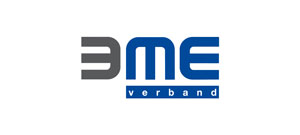

Richard Porstmann
Interim management in the era of digitalization: shaping the future
Reading time: 5 minutes
Table of contents
The digital transformation is no longer a distant vision, but an immediate reality. Artificial intelligence (AI), the Internet of Things (IoT) and blockchain are no longer visions of the future, but core elements of a modern business strategy.
Advancing technologization is not only changing business models, but is also shaping the world of work and requires organizations to be agile and adaptable. In this context, interim management is becoming increasingly important. Interim managers are the architects of change who are able to navigate companies through the complex waters of digitalization.
This article is dedicated to the central question: How can interim managers contribute to actively shaping the future of companies in the era of digitalization?
Current examples of digital innovation
Blockchain in the supply chain
Companies use blockchain technology to improve transparency and security in supply chains. Every step of a supply chain is recorded in an unchangeable digital ledger, which prevents counterfeiting and strengthens trust between partners.
IoT in logistics
Transportation companies use IoT sensors to collect real-time data. This data enables precise tracking information for customers and helps to optimize stock levels, monitor supply chains and increase efficiency.
AI in customer service
Companies are using chatbots that process customer inquiries with the help of AI and machine learning. They not only provide quick answers, but also learn continuously in order to optimize customer service .
The role of the interim manager in digitalization
Interim managers play a crucial role in managing the digital transformation in companies. They are experienced experts who are temporarily deployed in companies to take on special tasks and bring about change. The digital transformation opens up exciting opportunities for interim managers:

How interim managers can use digitalization
Various tools are used in the procurement and supply chain management (SCM ) of companies, with the interim manager playing a central role in the integration of these tools.
1. needs analysis and strategy development
The interim manager begins with a comprehensive needs analysis. It examines existing processes and identifies weak points and opportunities for optimization.
2. selection and implementation of the tools
In close cooperation with the company management, the interim manager selects the appropriate solutions. He focuses on end-to-end procurement, supplier relationship management and the tools' analytical capabilities. The manager monitors the correct implementation and ensures that they are seamlessly integrated into the existing infrastructure.
3. process optimization and training
The interim manager monitors the process optimization to ensure that the tools are used efficiently. He conducts training for the internal team to ensure that employees are familiar with the new tools and can use them effectively. He attaches particular importance to a smooth flow between supplier management and the digital procurement process.
4. performance monitoring and adjustment
After implementation, the interim manager continuously monitors the performance of the integrated systems. He analyzes data to ensure that the targets set are achieved. If necessary, he makes adjustments and optimizes the use of the tools to ensure the greatest possible benefit for the company.
5. change management and communication
The interim manager is also in charge of change management. He communicates the benefits of digitalization and the reasons for introducing these tools to employees. It ensures that everyone involved understands how the tools improve the workflow and make the company more competitive.
A holistic approach with an interim manager at your side
The integration of tools into the organization requires a holistic approach which includes not only technological solutions, but also strategic thinking and employee commitment. With an experienced interim manager at your side, you can ensure that this integration runs smoothly and your company can take full advantage of the benefits of digitalization.
Conclusions
- Growing demand for digital skills: Companies are increasingly looking for interim managers with digital skills, leading to an increased demand for qualified experts.
- Flexibility and collaboration: Digital technologies enable interim managers to work remotely and manage international projects. They will also have the opportunity to work with innovative start-ups and technology companies.
- Digital transformation as a reality: Digital transformation is no longer a vision of the future, but a current reality that is forcing companies to adapt in order to remain competitive.
- Interim managers as key figures: Interim managers play a central role in digital transformation, as they are deployed on a temporary basis to take on specific tasks and bring about change in companies.
If you have any suggestions or thoughts on this topic, please write to me.






